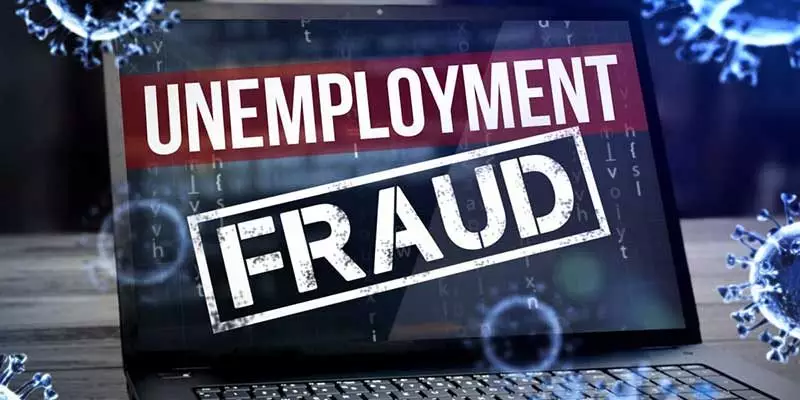How Identity Theft can Lead to Unemployment Fraud
Table of Contents
- By David Lukic
- Published: Apr 13, 2021
- Last Updated: Mar 18, 2022
2020 and the pandemic brought with it a flurry of fraudulent activity affecting various targets to steal money and personal information for identity theft. One group hit hard by these tactics was unemployment recipients.
According to the IRS, organized crime rings are using unemployment to steal credentials and other information like names, social security numbers, phone numbers, bank account details, credit cards, debit cards, and dates of birth for fraud and identity theft.
Many of the unemployment fraud victims’ information was stolen in previous data breaches, and then used to file for unemployment benefits by scammers. These types of benefit payment attacks are occurring all over the country.

Signs that You are the Victim of Identity Theft
Unemployment is taxable income, and therefore, the IRS issues you a state 1099-G tax form at the end of the year. If you never filed for unemployment benefits but received one of these in the mail, you could be the victim of identity theft.
Some other things that may indicate you are a victim of identity theft and someone other than you have filed for unemployment insurance benefits in your name include:
- You receive a notice or official letter from the IRS, U.S. Department of Labor, or another government agency about your unemployment benefits.
- You receive a 1099-G tax form that states you earned income in another state.
- Your employer asks you about an unemployment compensation verification letter they received from the government.
How to Report Unemployment Fraud
It is imperative to report identity theft if it happens to you. The U.S. Department of Labor provides step-by-step instructions on how to report fraud regarding unemployment benefits and a directory to find the right office to report it to.
Report Benefits Fraud to the State Where the Fraud Occurred
First, you must report unemployment fraud to the state where the fraud occurred. Some things to remember from the DOL are:
- “You may not receive immediate confirmation from the state when you submit a report. Time estimates for how long this process takes vary by state.
- The state may require additional documentation (like filing a police report or a sworn affidavit) in order to open an investigation; they will review your case and make a determination. Each state law has different requirements and a different process for investigating identity theft and reporting fraud.
- If you received a 1099-G tax form for benefits you didn’t receive, the state will need to issue you a corrected 1099-G tax form and will update the tax record with the IRS on your behalf.”
Be Sure to Report Your Correct Income on Your Taxes
When you file your taxes, don’t wait for a new 1099-G or updated information; file them using your correct income according to your records. Tips from the IRS fraud department and DOL on that are:
- “The processing of your tax return should not be delayed while your report of unemployment identity theft is under investigation.
- If you have not filed your taxes yet, do not report the incorrect 1099-G income on your tax return.
- The American Rescue Plan of 2021 provides for a one-time exemption of $10,200 per person in unemployment benefits to individuals and couples who earned $150,000 or less last year. If you have already filed your taxes, do not file an amended return. The IRS will issue additional guidance.
- There is no requirement to file a Form 14039, Identity Theft Affidavit. A Form 14039 should be filed only if the taxpayers’ e-filed tax return is rejected because a duplicate return with their Social Security number is already on file or if the IRS instructs them to file a Form 14039.
- If you have already filed your taxes, do not file an amended return. The IRS will issue additional guidance regarding your next steps. Refer to the Identity Theft and Unemployment Benefits page on IRS.gov for updates and additional tax filing information.”
Sign Up for the IRS Identity Protection PIN Program
Anyone who is a victim of identity theft should participate in the IRS PIN program to prevent anyone from filing tax returns on their behalf. Income tax fraud is another very serious issue right now. The PIN program assigns you a six-digit pin, and no one can file in your name without it. You can sign up for a tax fraud alert here Get an IP PIN.
Get a Copy of Your Credit Report
The next step is to check your credit report to look for any suspicious or unauthorized activity. You should contact each of the three big credit reporting agencies (Equifax, TransUnion, and Experian). You can order a free copy online (free every 12 months). You will need to verify your identity when calling, so have your name, social security number, date of birth, and other details ready. Ask to have a fraud alert added to your credit file.
Report Fraud to the U.S. Department of Justice’s National Center for Disaster Fraud
To help the country as a whole deal with identity theft and unemployment fraud, you should also report the incident to the U.S. Department of Justice’s National Center for Disaster Fraud. They, in turn, will share the information with the U.S. Department of Labor’s (DOL) Office of Inspector General. You can also contact your local attorney general and report the unemployment insurance fraud as well.
You should also contact the FTC (Federal Trade Commission) and report identity theft to them. You can file as a claimant online or by phone.
Contact local law enforcement to report any unemployment claims that you did not initiate.

How to Protect Yourself from Unemployment Fraud
The Department of Justice issued a warning to folks about fake state workforce agency (SWA) websites designed to look like unemployment benefits portals. Typically, fraudsters use text messages or phishing emails to lure people in, hoping they will click the link and land on the website, then fill out a form using personally identifiable information. These are scams just waiting to collect your data for identity theft and unemployment fraud. Some tips to avoid unemployment fraud are:
- Never click links in text messages or emails when they come in unsolicited.
- Use common sense, and if something sounds too good to be true, it probably is.
- Always protect your social security number and date of birth.
- Never enter personal details online without verifying the URL and making sure the connection is encrypted.
















